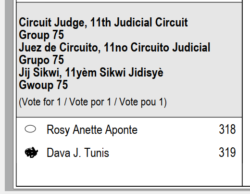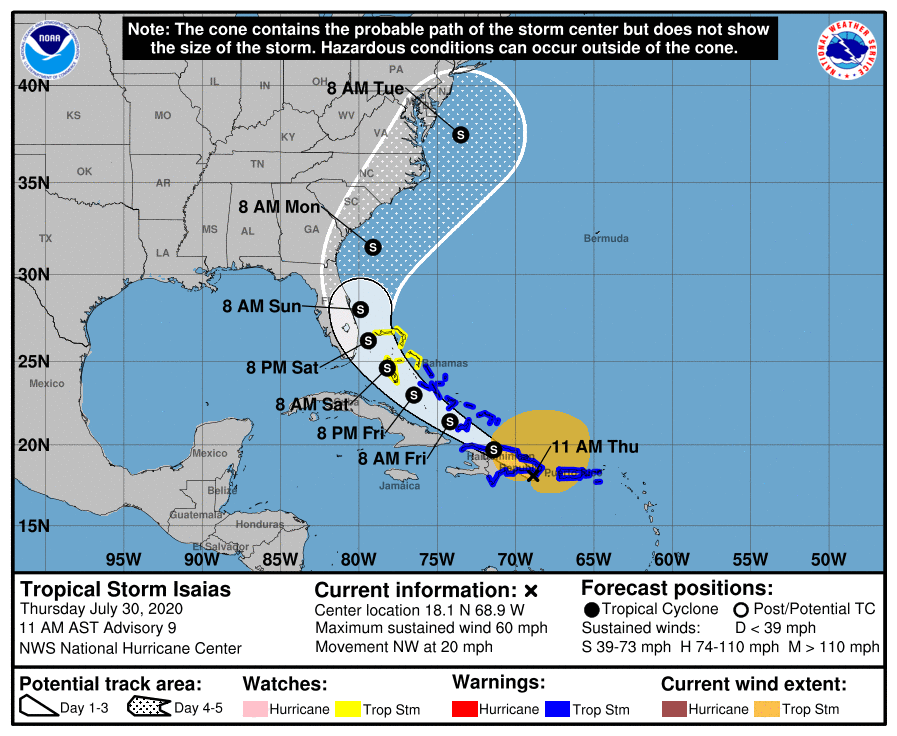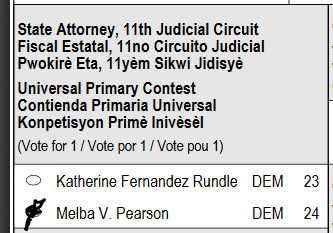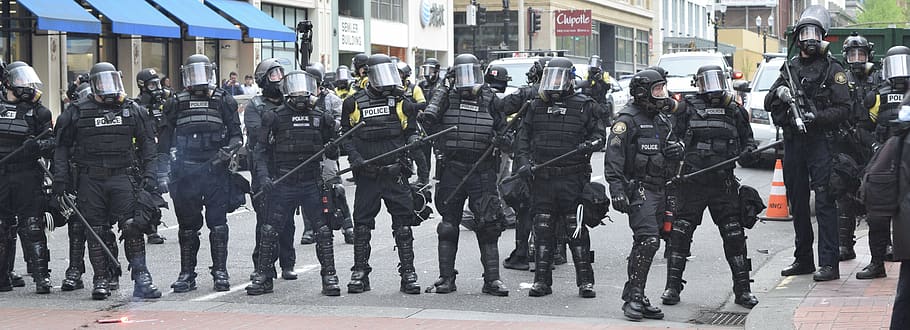This is Part II of my 2020 Primary Election Recommendations. Don’t miss Part I (the non-judicial elections).
Judges
 Unlike most law professors I know, I support the idea of judicial elections at the state level as a reasonable democratic check on what I believe should be the expansive power of judges to interpret the state and federal constitutions.
Unlike most law professors I know, I support the idea of judicial elections at the state level as a reasonable democratic check on what I believe should be the expansive power of judges to interpret the state and federal constitutions.
As I’ve often said before, if it were up to me, I’d have the executive branch pick judges with legislative confirmation, followed by a California-style retention election every few years in which there would be an up or down vote on the incumbent. If the vote was down, the executive would pick a new judge. It seems to me that the right question is “has this judge done a good (enough) job” — something voters might be able to figure out — rather than asking voters to try to guess from electoral statements which of two or more candidates might be the best judge.
Florida’s system uses appointment plus retention elections for Supreme Court Justices and District Court of Appeal Judges, but not for trial courts. The Governor can appoint judges to fill vacancies between elections, but otherwise those jobs are straight up elected, so this election pits one or more challengers against the incumbent unless, lacking opposition, the incumbent wins reelection automatically; many trial judges were indeed unopposed this year. There are also open seats when the incumbent retires.
My recommendations are based on:
- My personal view that I will vote for an incumbent judge unless there’s reason to believe he/she is doing a bad job.
- After supporting incumbents, my other rule of thumb in sizing up candidates before even getting to the details of biography and practice experience is that in all but the rarest cases of other important life experience we ought to require at least ten years of legal experience from our lawyers before even considering them as judges. Fifteen years is better. I will very rarely support a judicial candidate fewer than ten years out of law school. It just isn’t long enough to get the experience and practical wisdom it takes to be a judge.
- I look to see if the candidate filed a voluntary self-disclosure form with the state. I prefer candidates who take the trouble to fill out the form and give thoughtful replies. Normally I also look hard at the Dade County Bar Association Poll in which lawyers rate the sitting judges’ and the candidates’ qualifications. The response rate is not that great on this poll, but I do think that if there’s a large majority one way or the other that tells me something. Unfortunately, this year the poll is remarkably unhelpful: It tells me Judge Thomas Rebull is considered one of the better judges, which I guess is good to know especially as some anonymous commentators on another blog seem to have it in for him, and it tells me a lot of lawyers think challenger Rosy Aponte is unqualified, but I knew that without looking at a poll. Other than that it is not very informative.
- This year, The Daily Business Review (DBR) published a useful voters’ guide to judicial elections.
- If all else fails, I look at the Miami Herald’s view. (But not this year, the Herald hasn’t done its endorsements yet.) [Update 8/6/20: The Herald’s endorsements are out now.]
- And oh yes, I read local blogs and listen to gossip too. Except this year, gossip is scarce, since I’m not leaving the house….
This will be a long blog post because there are five Circuit Court elections and two County Court elections in Miami-Dade this year. Both are trial courts, but the County Courts have a more limited jurisdiction, comprising Misdemeanors, small claims up to $5,000, civil disputes up to $15,000, and traffic court. Circuit Courts have broader jurisdiction. They also hear some appeals from County Courts, while other appeals go straight to the DCA’s, the District Courts of Appeal.
All registered voters in Miami-Dade County get to vote on these judges, regardless of party affiliation. Here are my suggestions how to vote in the August 18, 2020 judicial elections:



